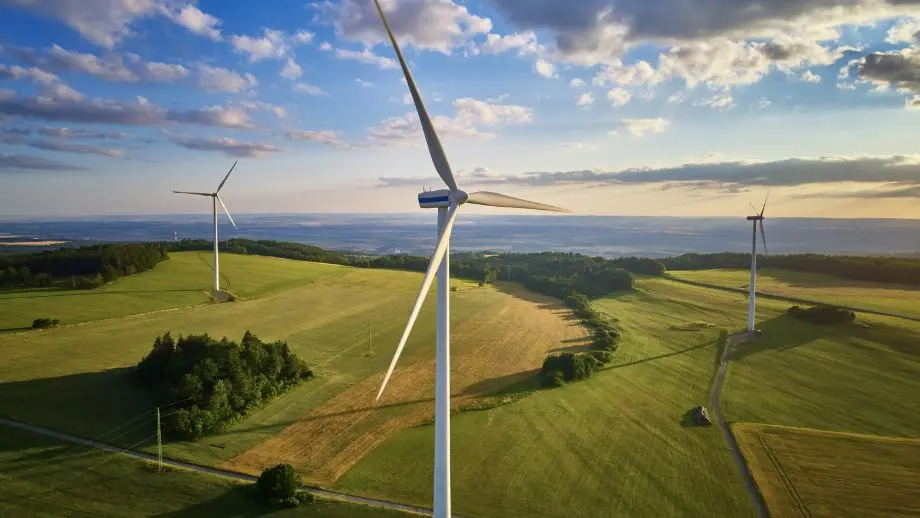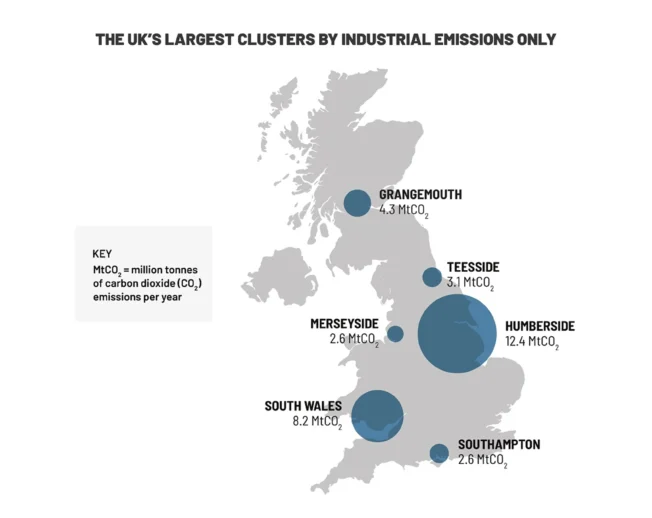UK submits newest Paris Agreement commitment – what does it mean for businesses?
25 April 2025

In January 2025, the UK submitted its latest Nationally Determined Contribution (NDC) to the United Nations Framework Convention on Climate Change (UNFCCC). Submission of NDCs every five years is an obligation under the Paris Agreement.
This is a milestone in the UK’s efforts to address the climate crisis. So, in this article, we explain what the UNFCCC, Paris Agreement, and NDCs are, and what January’s NDC might mean for your business.
What is the UNFCCC?
The UNFCCC was established in 1992 to “prevent dangerous anthropogenic interference with the climate system”. It has now been signed by 198 countries, which are known as Parties to the Convention. They meet annually at the Conference of the Parties (COP) to assess progress on the goals of the convention and make decisions.
What is the Paris Agreement?
At the 21st COP in Paris, France, in 2015, a landmark, legally-binding agreement was made. It requires the UNFCCC Parties to limit “the increase in the global average temperature to well below 2°C above pre-industrial levels”. However, the agreement also states that every effort should be made to keep the increase below 1.5°C. Only then can the worst effects of climate change be avoided.
What is a Nationally Determined Contribution?
NDCs are “at the heart of the Paris Agreement”. They comprise what a country will do to meet the agreement’s goals. They must be updated every five years, with the ambition “ratcheting up” each time. The UK’s latest commitment, for the period of 2031 to 2035, was announced at COP29 in November 2024. The UK will reduce all greenhouse gas emissions by at least 81% compared to 1990 levels (excluding international aviation and shipping emissions).
The announcement was followed by the written NDC earlier this year, in time for COP30 in Brazil in November. The document includes the reference points for the target, time frames, scope and coverage, preparation and implementation processes for the NDC, and how emissions will be measured. This is consistent with the facilitation of clarity, transparency and understanding (CTU) requirement in the “Paris Rulebook”.
The graphic below shows the intended path for meeting the goals of the Paris Agreement. Note that we are now on the 2025 bubble. The Global Stocktake is an assessment of the world’s response to the climate crisis at that point in time.

Image source: World Resources Institute.
What does the new NDC mean for businesses?
The following sectors are included by name in the NDC:
- Energy (including transport)
- Industrial Processes and Product Use (IPPU)
- Agriculture
- Land-use, Land-Use Change and Forestry (LULUCF)
- Waste
Each of these sectors is addressed in the NDC’s implementation section.
Energy
With energy use typically the main driver of emissions in most sectors (stemming from transport, heating buildings, and powering industry), energy is an important aspect of the NDC for businesses.
In the energy paragraph, the government references the Clean Power 2030 Action Plan, which was published in December 2024. The goal of the action plan is for the UK to generate enough clean power by 2030 to meet its total annual electricity demand. Clean power is defined as electrical energy generated from “low carbon sources”, namely, renewables, nuclear, and gas with carbon capture and storage.
For businesses, domestic power from renewables should mean more stable energy prices and protection from volatility. This would allow businesses to plan and invest with confidence. There will also be many opportunities for relevant businesses to be involved in infrastructure development.
Transport
The Zero Emission Vehicle (ZEV) mandate is a key component of the UK’s Net Zero Strategy, and is referenced in the NDC. Starting from 2024, car manufacturers must increase the proportion of ZEVs they sell, culminating in all new car sales being zero emission vehicles in ten years’ time.
This means that businesses will increasingly need to move to an electric fleet. In the short term, this could prove costly. However, support from the government in purchasing certain electric vehicles is available, and, as the market evolves (for example, as the variety of ZEV models increases and more vehicles are manufactured) prices are expected to decrease. Businesses operating HGVs have longer to transition due to the current low availability of zero emission HGVs.
As uptake of ZEVs increases, there will be more pressure on charging infrastructure, which could present challenges for businesses. However, there are government schemes in place to help meet demand, such as the Electric vehicle infrastructure grant for staff and fleets and the Workplace charging scheme.
Industry experts recognise the uncertainty surrounding the ZEV mandate and stress the need for businesses to plan and prepare effectively. We also recommend staying up-to-date with the government support available (visit the Office for Zero Emission Vehicles website here) as initiatives can expire and/or new ones may be introduced.
Industry
The NDC states that the UK government will publish a new Industrial Decarbonisation Strategy by 2026. However, there are no details of any likely measures within this strategy, nor mention of any measures from the previous 2021 Industrial Decarbonisation Strategy.
In the 2024 House of Commons net zero research briefing, industrial electrification and a focus on decarbonising geographical “clusters” of industry were discussed. Various stakeholder groups emphasise the need for concerted action on electricity prices and grid infrastructure to facilitate this. There are also concerns around job losses in the industrial transition to net zero. Development of net zero skills needs to be supported in order to ensure a “just transition”.
January’s NDC also discusses the UK’s plans to launch carbon capture, usage and storage (CCUS) and hydrogen industries, as well as the phasing out of F-gases, which are substitutes for ozone-depleting substances but powerful greenhouse gases.

Image source: CATCH UK.
Agriculture
It is written in the NDC that the government will continue to roll out and optimise the Environmental Land Management schemes (ELMS). This includes the Sustainable Farming Incentive, Countryside Stewardship, and Landscape Recovery initiatives. Farmers are paid to adopt sustainable farming practices, protect notable features or habitats, and restore landscapes.
These practices can help lock carbon away in the land and reduce emissions from soil management. The schemes differ from the preceding EU policy by paying farmers for environmental improvements, not the amount of land they farm. Find an overview of the funding transition here. According to the NDC, methane emissions from cattle are also being tackled, as indicated in the 2022 Methane Memorandum.
Waste management
Many businesses will be impacted by the new waste plans mentioned in the NDC. As of March 2025, businesses with greater than 10 employees need to separate their waste more carefully. This will be a requirement for households in 2026, and small businesses in 2027. The new regulations will mean fewer gases from landfill and increased recycling rates. The latter will reduce the amount of the energy (i.e., fossil fuels) and resources needed to create new products. There is a great guide to the new Simpler Recycling legislation here.
Extended Producer Responsibility for packaging (pEPR) is also a recently-implemented regulation. This shifts the cost of managing households’ packaging waste from local authorities to the businesses that put the packaging on the market. Businesses may need to collect and report packaging data, pay waste management fees, and/or fines. Check the UK government website to see if your business needs to comply.
There’s more to come
January’s NDC highlights many of the UK’s ongoing efforts to meet the goals of the Paris Agreement and limit global warming to less-disastrous levels. We’ve picked out a few of the measures from the document that may be particularly relevant to your business. However, the NDC doesn’t go into detail (often you can find the detail in each policy’s respective publications) and stresses that an “updated cross-economy plan” will be set out “in due course”. While addressing the climate crisis may lead to a lot of uncertainty and many challenges for your business, it is ultimately an exciting opportunity to grow.
Not sure where to start? A Net Zero Feasibility Study, conducted by EMS, can give you a comprehensive overview of carbon emissions associated with your operations and indicate where improvements can be made. Get in touch with our Consultancy Manager, Rebecca Chapman, to find out more.








